EN

Between the need for a specialised crew, the cost of filming and the difficulty of making a profit from screenings, cinema seems like a terrifying vocation. However, there is a passion that drives those looking to work in the field and that doesn't seem to die out in the face of adversity. There is a mass of new film creators in a city with new infrastructures where it can be created, but also experienced. We sought out four creators at different stages of a journey focussed on the light we find in dark places.
The script for a career
Let's start at the beginning: the education. Over the years, the Som e Imagem course at the Universidade Católica do Porto has gained a reputation as a platform for creating new filmmakers. In addition to those who follow a broad audiovisual production path, the course has trained names that have become key creators on the national film scene: producer Rodrigo Areias (founder of independent production company Bando à Parte), directors José Magro and João Niza Ribeiro (founders of Pântano Filmes), or Luís Costa and André Guiomar (creators of Cimbalino Filmes).
Detecting this stream of film-focused students, the institution created a degree in Cinema in 2020. We met with Pedro Alves, coordinator of the degree, at the university's School of the Arts, where he took stock of the "first batch" of graduates: they have already won two prizes for documentary shorts at the Sophia Awards, and a fiction film was awarded a prize in the Take One section of Curtas de Vila do Conde. Pedro defines the pedagogical methodology as project-based learning, "a pedagogical model that isn't exactly new, but which isn't seen much in Portugal in the area of cinema". This way, the students learn from the outset to be part of a team that includes producers, scriptwriters, directors of photography, directors and editors — not least because, he points out, "many of them are still discovering the area in which they want to specialise".

© Rui Meireles
Start without fear: João Mendes Pinto
One of the students who has already completed this discovery is João Mendes Pinto who, in the most recent edition of the Sophia Awards in 2023, won the Student Prize with the short documentary film Enquanto Houver Ovelhas, which follows a couple of shepherds in Seia. However, he confesses that documentaries are not the only format he intends to explore in his chosen role in cinema: directing.
A recent graduate in cinema, he is now studying for a master's degree in the area and is taking advantage of the network that exists in his student work: colleagues in the different areas of production. Regarding his plans for the future, he cites a reference of his, the Finnish director Aki Kaurismäki: "I've never made a great film, but I've made several middling ones."

Enquanto Houver Ovelhas by João Mendes Pinto, © DR
Portugal, doc., 2022, 20’
And what are these films? João doesn't (yet?) say he's tied to a medium or a genre. He talks about ideas that grab him and push him towards a new project, but that "being a director isn't a carte blanche to take credit for everything". So that original idea "is something that is built with the team. The way it's lit, the actors' interpretation of the dialogue, these are all things that build the film."
João says he's aware of the difficulty of making films in Portugal, but argues that this didn't even enter into the decision-making process. "I had no choice but to follow this passion." He even refuses to consider migrating to another country where making films might be easier, because, he says, "I want to film what I know, and what I experience on a daily basis. If I landed in another country to film now, I'd have an exoticised vision. Like when someone comes here, films the D. Luís bridge and thinks they've invented the wheel."
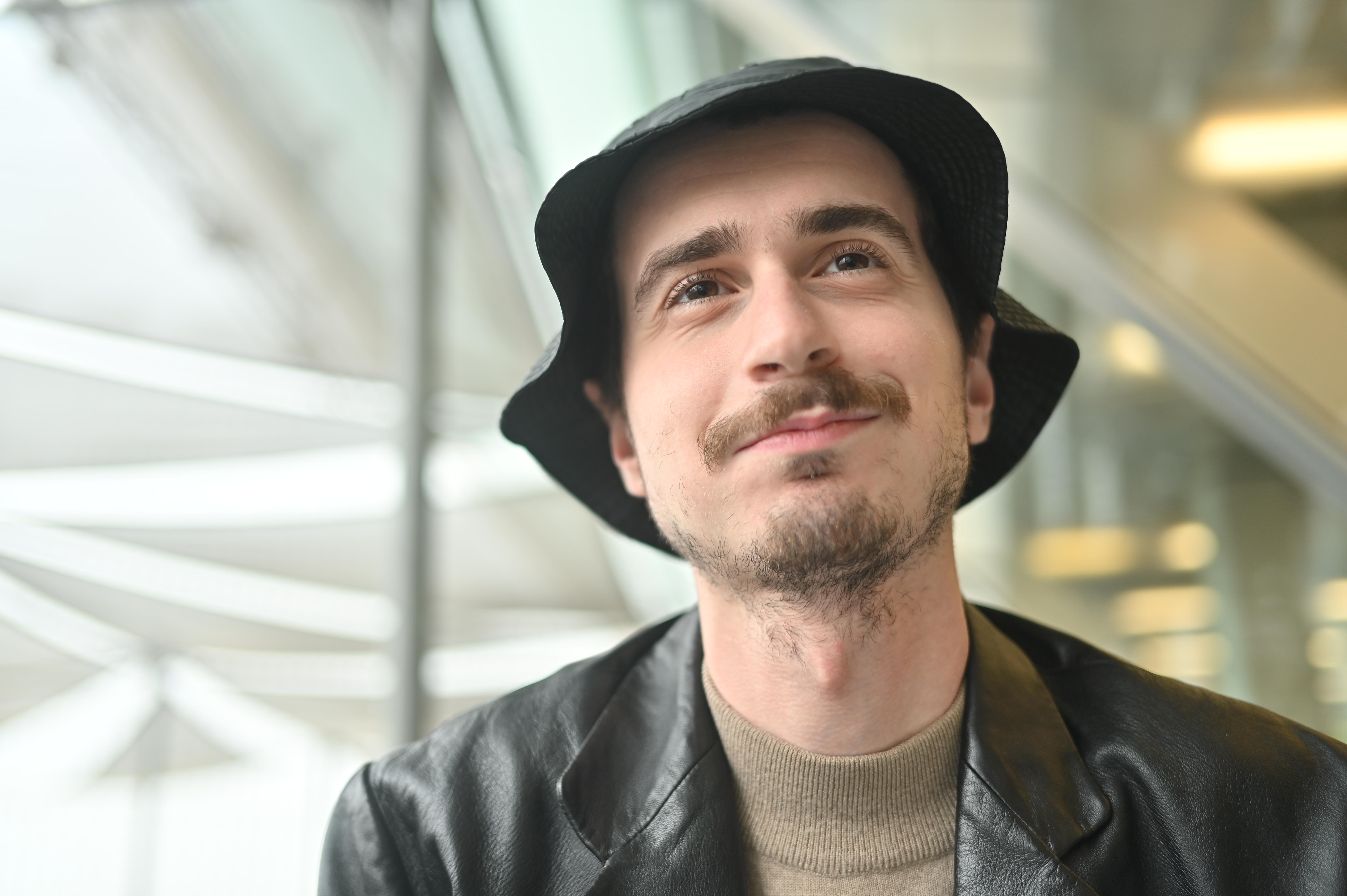
© Rui Meireles
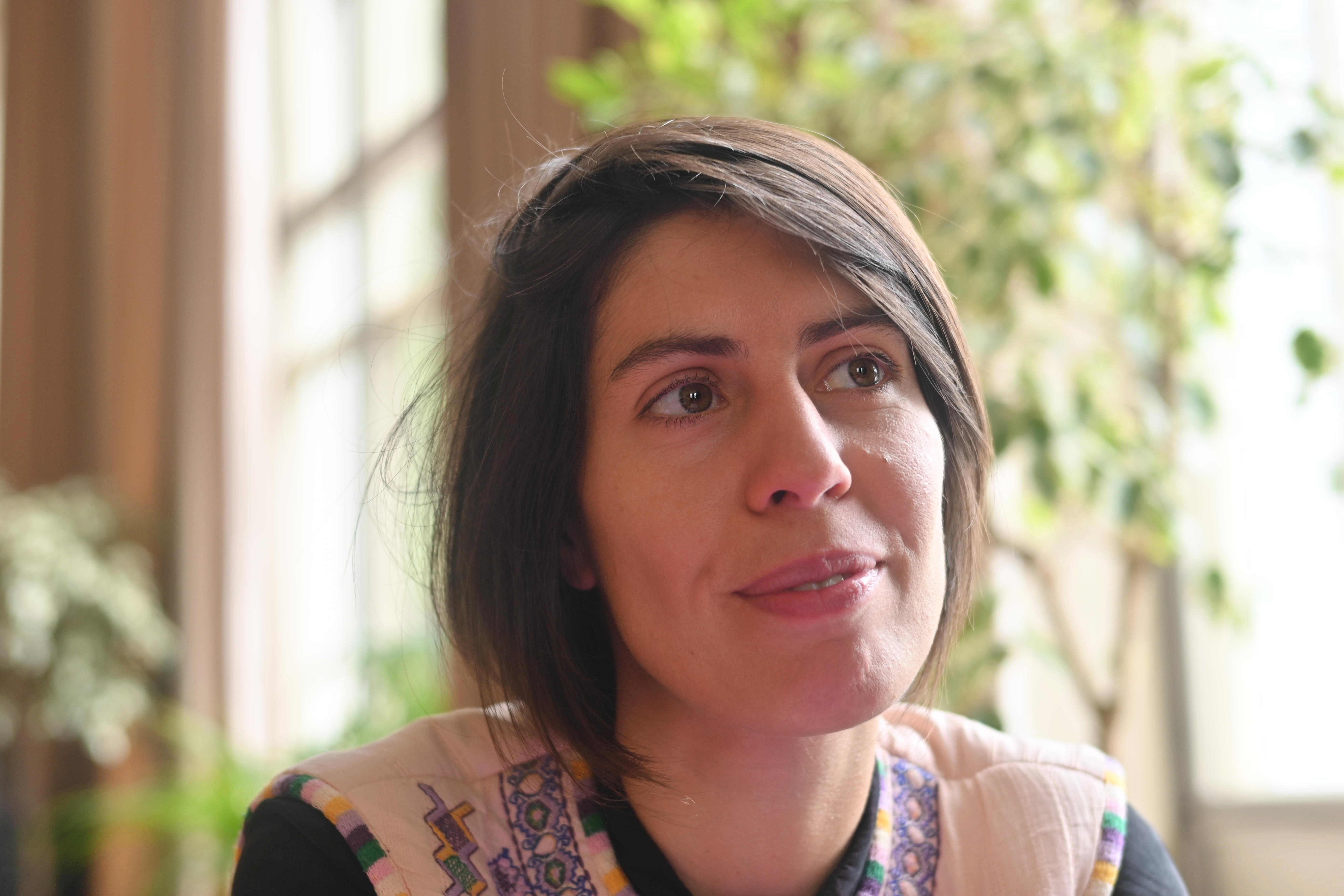
© Rui Meireles
Portugal/Germany, 2024
Mariana Bártolo feels that same attachment to the stories she knows, especially now with what she calls "emigrant syndrome", since she is living in Germany. She originally studied at the Escola Superior de Dança in Lisbon, where "everyone already knew that I carried a camera around with me, people got used to this sort of extension of my body". Her choice for dance lost staying power and she began applying for film courses around Europe. "I wanted something that was media art and not just typical film studies" — and that's what she found at the KHM —Academy of Media Arts in Cologne, Germany.
Although she entered the course with photography in mind, cinema gradually took over and is now her main focus, and the early days have left their mark. "Dance still informs the work I do and the work I do with actors. The physicality, the emotions that the body arouses."

As Gaivotas Cortam o Céu by Mariana Bártolo and Guillermo García López, © DR
Portugal, fic., 2023, 18’
In 2023, she was part of an exhibition of three Portuguese short films at the Directors' Fortnight at the Cannes Film Festival, with the documentary As Gaivotas Cortam o Céu, which she co-authored with García Lopez. But Mariana admits that she is "detached from awards". "I know how important it is on the CV, but I'm not dazzled by these things. On the contrary, I'm more of a dissident, more underground." Still, there was time for the essentials. "I remember one moment that was very important, which was going to the cinema and seeing Salaviza's new film and realising 'ah, that's what I'm here for'. I was very moved by the film, and it also served to bring me back to reality, in the midst of that world of show-off."
Reality turns out to be the director's main object, and she already has three documentary short films and two fiction films based on her own affective memories. This exposure is seen as inevitable by Mariana. "We can't get away from ourselves, although I like to go a little beyond myself with fiction."
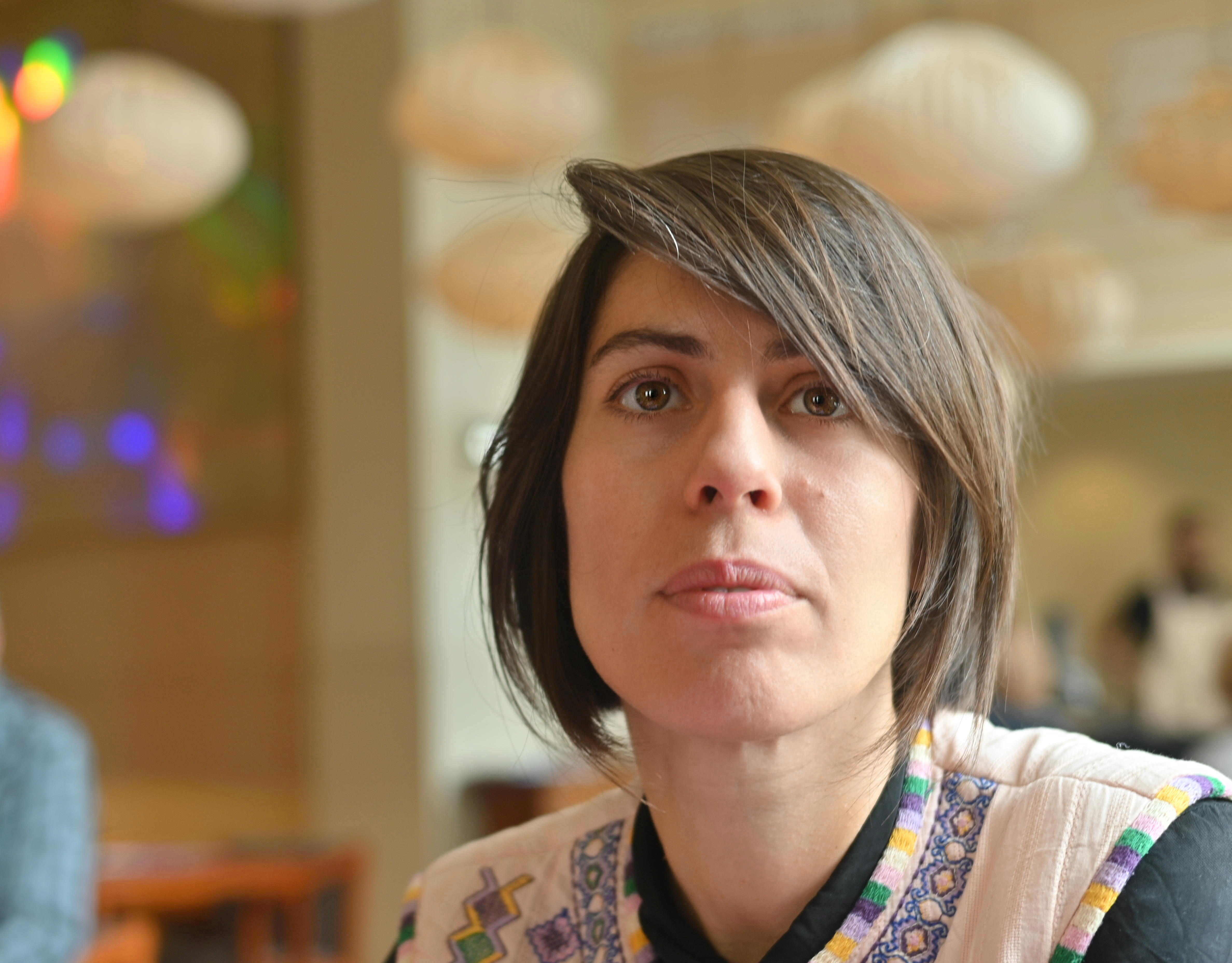
© Rui Meireles
Reality is also the starting point for the film Mariana is working on. À Mesa is an experimental documentary that starts from the fixed places at the table that each member of a family has. "It's a speculation about how, eventually, these places affect who we are, and a reflection on gender roles and family roles."
Between her personal experience and that of others, this experimental documentary takes as its main narrators young daughters and the relationship between their place at the table and their future place in society.
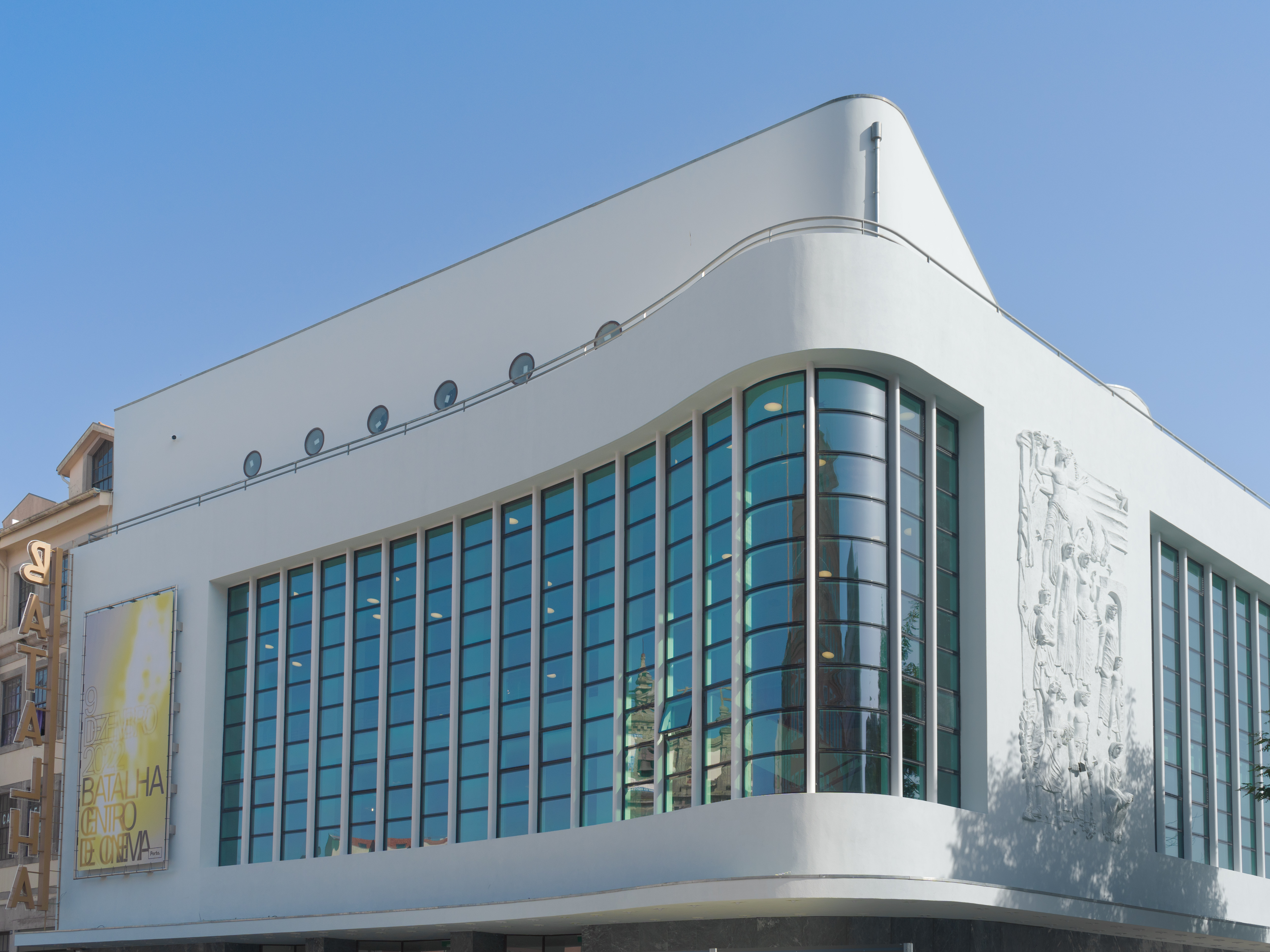
Batalha Centro de Cinema, © Paulo Cunha Martins
Cinema back in the centre
À Mesa, by Mariana Bártolo, was one of the works chosen for the Pascaud grant, one of the two categories of Filmaporto's annual funding grants. Created by the Porto City Council in 2021, Filmaporto is a film commission — a type of organisation dedicated to promoting and supporting film production in specific cities or territories. This support includes the promotion of available professionals in Porto, operational assistance for foreign productions travelling to Porto for filming, and the awarding of grants for productions shot entirely in the city. These grants — the Neves Scholarship and the Pascaud Scholarship (named after the pioneers of cinema exhibition in Porto, António Neves and Édmond Pascaud) — have already awarded 15 scholarships worth 20,000 euros each.
Although it is an instrument for the industry, Filmaporto has a point of contact with the public: since the inauguration of the Batalha Cinema Centre, every last Thursday of the month Filmaporto Sessions have been screened, featuring films by new Porto directors, filmed in Porto, that have not yet been shown in the city.
This aspect of giving space to emerging filmmakers is part of the mission of the Batalha Film Centre, which last December completed its first year of operation in the refurbished emblematic building. In addition to themed cycles and retrospectives that include new forms of filmmaking, there is another programme entirely dedicated to new creators: the New Moons cycle. As the name suggests, coinciding with the day of the month when the moon enters its New Moon phase, there's a screening dedicated to the work of a filmmaker who has not yet made their second feature film, usually followed by a conversation between the creators and the audience.
The responsibility of cinema
Tomás Paula Marques was the guest who inaugurated Batalha's New Moons in December 2022. The session included the director's first three short films and ended with When We Dead Awaken, a film-performance in analogue projection with the participation of regular collaborator João Abreu. Paula recently premiered her new short film, Dildotectónica, and is already preparing her next work. In conversation, she admits that cinema was a late calling. Although it was always there, during her teenage years "I was interested in literature, photography, theatre too, acting", and cinema ended up gaining supremacy as "an intersection between all the other artistic expressions".
But that's not all. She also saw that cinema "allowed for a project of empathy and the creation of debate, through the modelling of emotions and time", which the other arts didn't leverage in the same way. This modelling of emotions is only possible through working closely with performers, a skill developed early on at Lisbon's Escola Superior de Teatro e Cinema. The degree was followed by a postgraduate course in Sociology, but Marques doesn't recognise this as a deviation. "Basically, I also see cinema as a possible social science and, in that sense, going into Sociology came from a shortcoming I felt in my degree in Cinema: a negligence in relating the representation of the Other to a bigger picture, to a context."
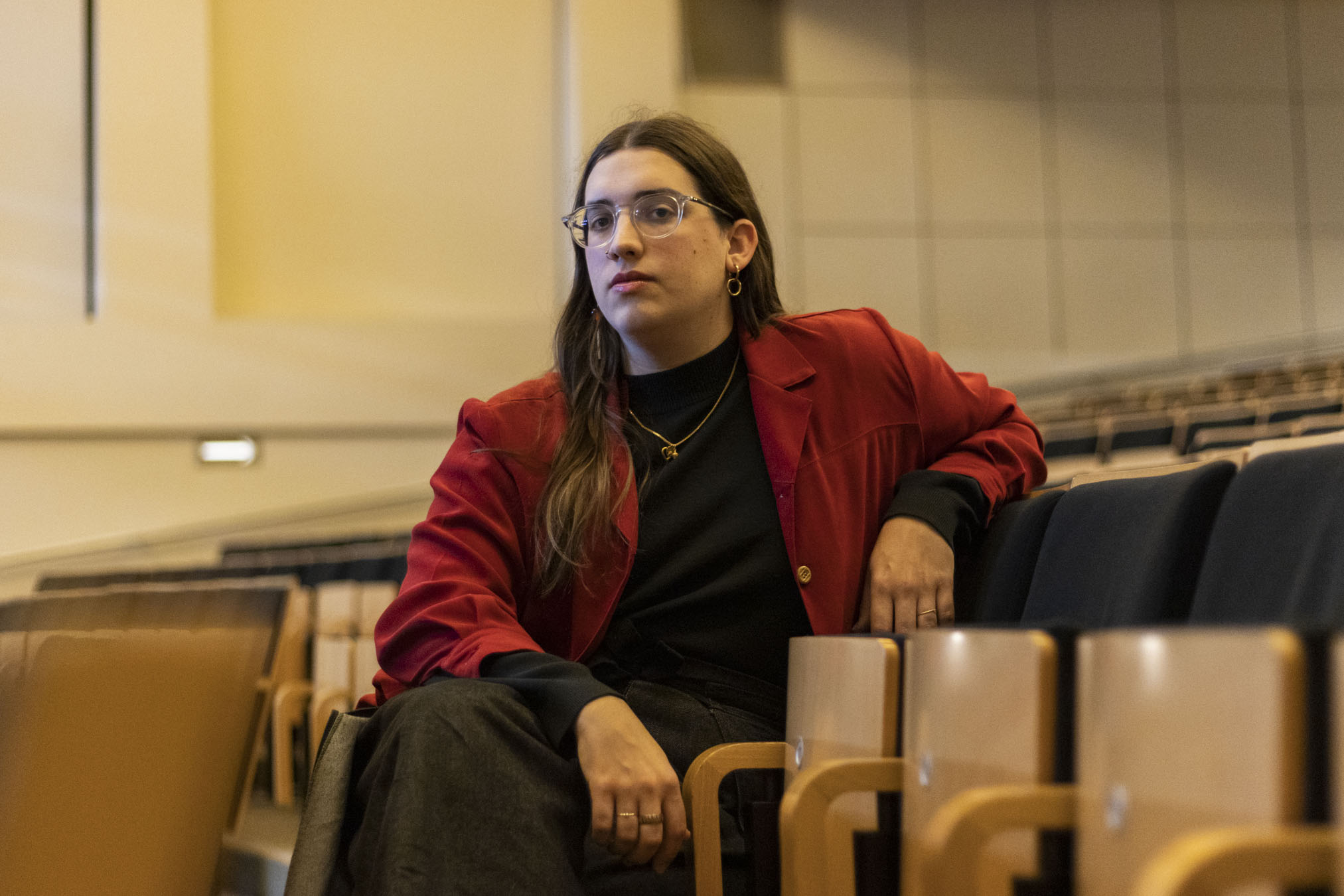
© Andreia Merca

1, 2 | When We Dead Awaken by Tomás Paula Marques, © DR
Portugal/Spain, fic./exp., 2022, 10’
3, 4 | Dildotectónica by Tomás Paula Marques , © DR
Portugal/Spain, fic./exp., 2023, 16'
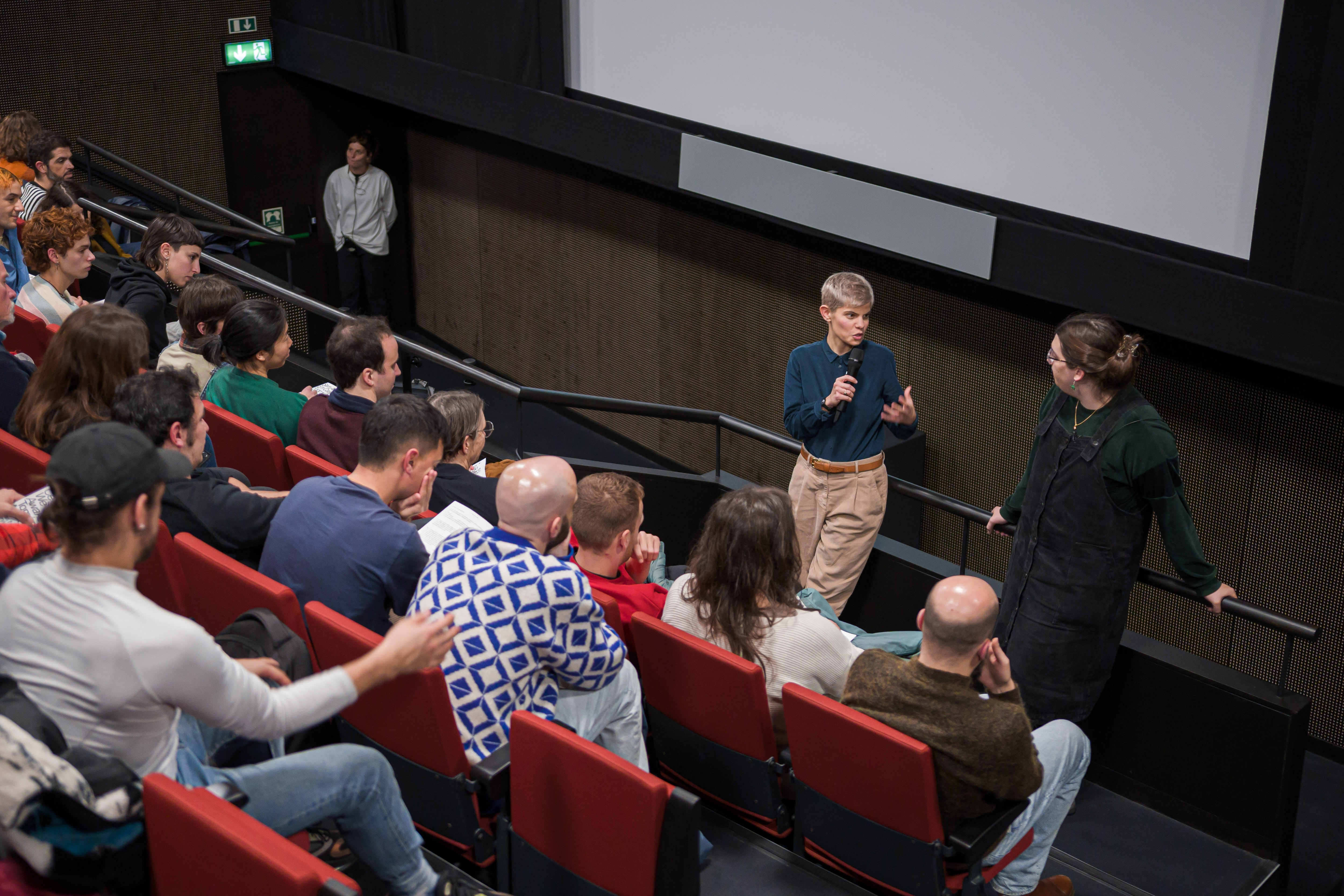
New Moons session dedicated to Tomás Paula Marques at the Batalha Film Centre, © Paulo Cunha Martins
This search for depth in the field of Sociology was followed by an exploration of different production methods in a Master's programme at the Elias Querejeta Film School, in the Basque Country. "I felt that I was becoming unfulfilled working in the standard production model, because of the frustration of needing to have a team in which there were very defined and hierarchical positions — positions that exist for a reason, I'm not devaluing that, but which limit us to a linear logic of looking at shoots." At Elias Querejeta, a school focused on shooting on film and more "impulsive" forms of filmmaking, she made When We Dead Awaken, a clear break with the style of her previous short films.
Although it had already been a theme touched on in Cabra Cega, When We Dead Awaken also represented the entry into a theme that Paula Marques had been investigating since her Sociology days: that of gender dissidence and the persecution of queer people since the time of the Inquisition. This is a theme that runs through the director's most recent film, Dildotectónica, in which she once again collaborated with actress João Abreu. João was aligned with the themes of the background research into gender dissidence. "We felt that we thought in similar ways about a lot of things and I started to share my research and the ideas I started to have with her too, and we felt a great affinity — it's a collaboration that I really value and that is very fruitful, also because we are two trans people who share a lot of experiences."
Codified emotion
João Gonzalez was also a guest at one of Batalha's New Moons in 2023, in a session that also included a musical performance by the director. This presence of music reveals a path that could perfectly well have taken another direction. He started learning to play the piano at the age of four. When he was 12, his career was interrupted by a strong commitment to professional volleyball, and he even played for Académica de São Mamede. Along the way, drawings were made, and he never lost sight of the idea of studying architecture. It's time for secondary school and João enters Science, with the intention of taking up Computer Engineering. But his Maths exam didn't go as well as he'd hoped, and he was accepted at his second option: Multimedia, at Politécnico do Porto.
Among so many possible avenues, it might seem like a mere coincidence that he ended up in animation, but in truth, animation was already waiting for João, like an old armchair that has already taken on the shape of our body. "Animation is a natural combination of everything I like to do, isn't it?" Not only did animation combine cinema, music and drawing, but it also had an essential function: control. An attraction for control is something that João Gonzalez embraces without hesitation: "I can control the sounds, I can control the timing of everything. I can know exactly how the audience will receive and interpret the story I'm telling."
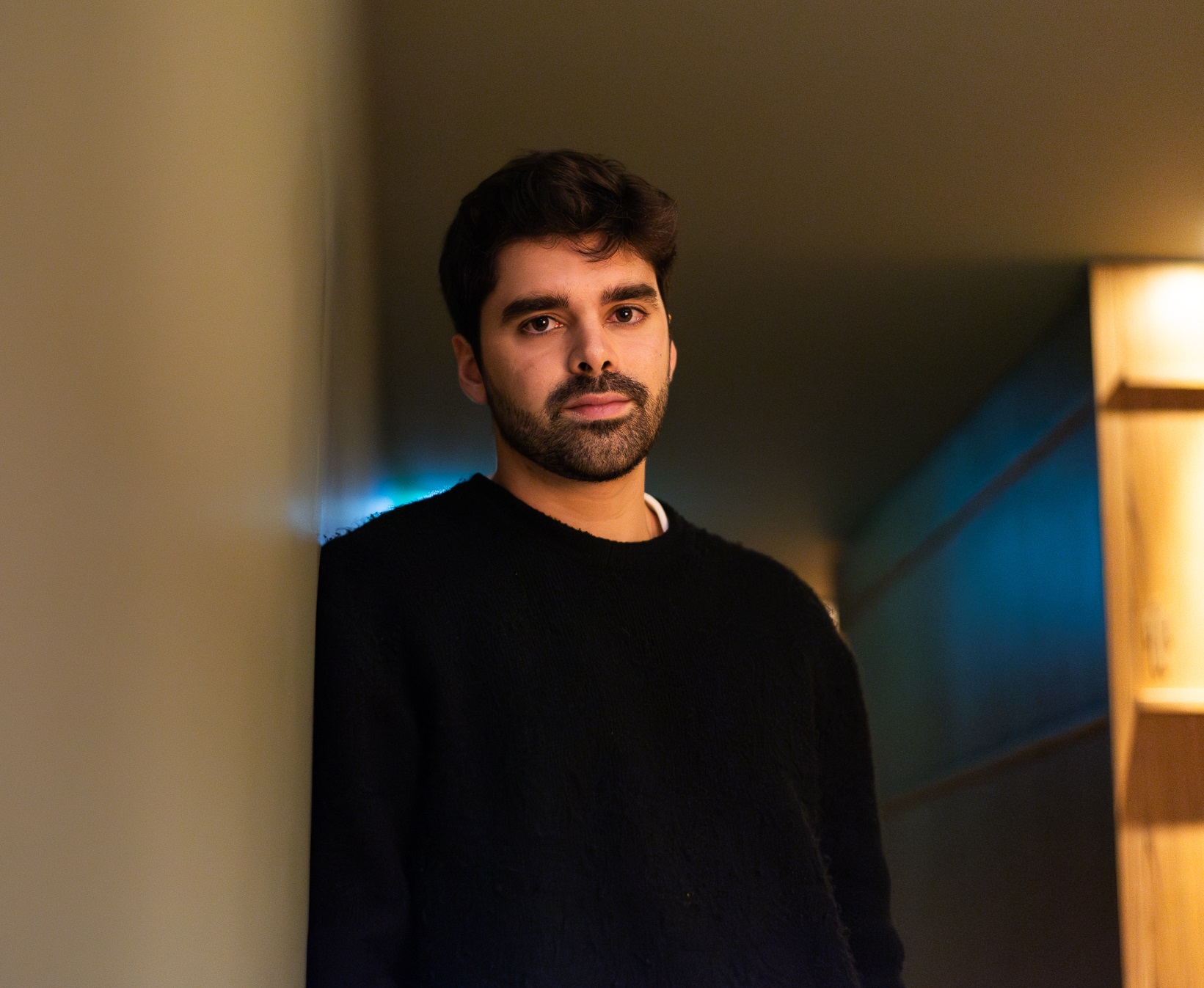
© Nuno Miguel Coelho

1, 2 | Ice Merchants by João Gonzalez, © DR Portugal/France/United Kingdom,
fic./anim., 2022, 14’
3 | Nestor by João Gonzalez, © DR
Portugal/United Kingdom, fic./anim., 2019, 6’
4 | Voyager by João Gonzalez, © DR
Portugal, fic./anim., 2017, 4’
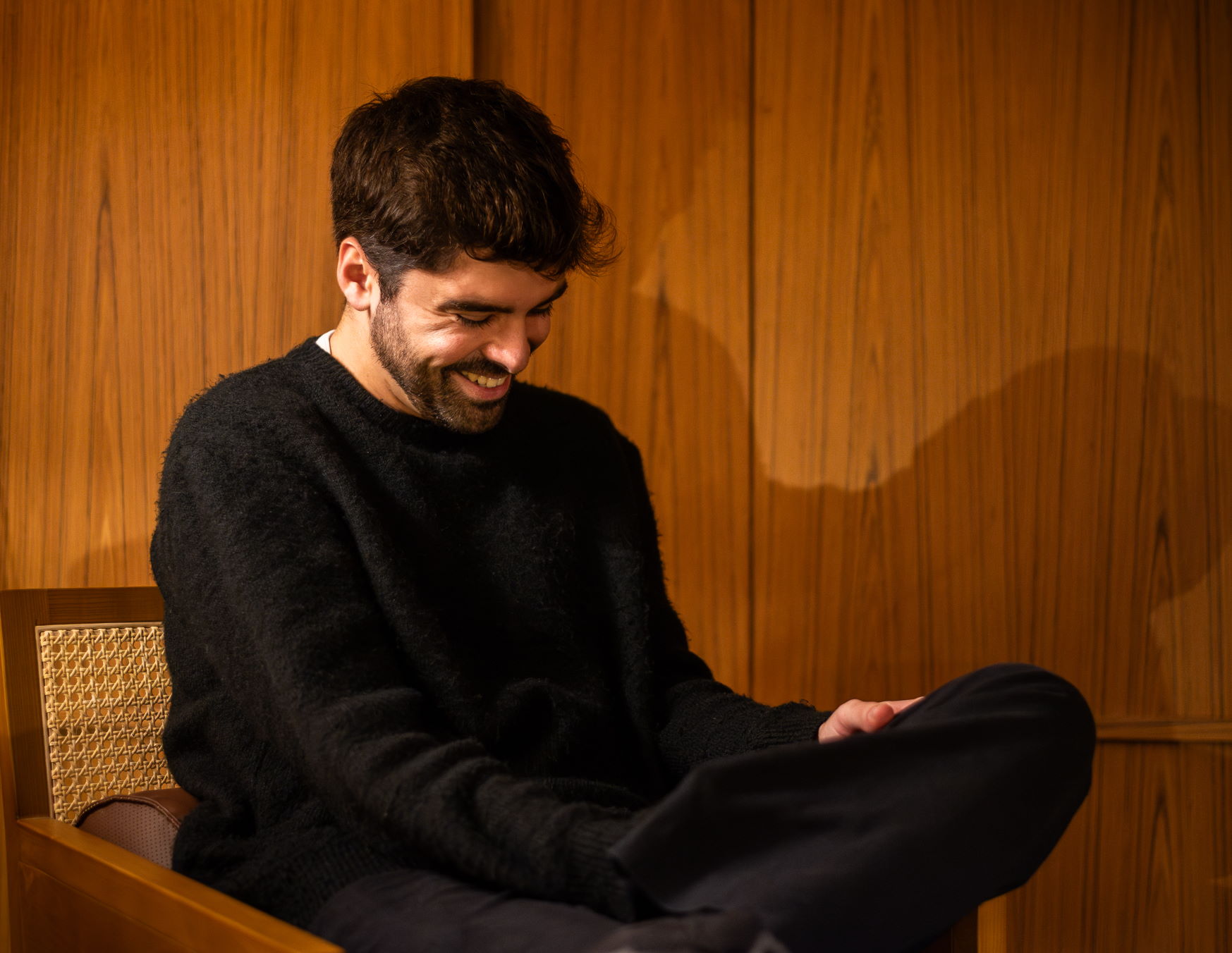
© Nuno Miguel Coelho
This control is increased by the solitary nature of animation work, something that João values: "when I'm animating and making a film that I really like, I go into a trance-like state that wouldn't work very well with other people". He concedes, however, that there’s always a valuable team behind him, such as the team that helped with the colouring of Ice Merchants (2022).
It was, in fact, with Ice Merchants that João achieved what can only be seen as a triumph: a nomination for the Oscars for Best Animated Film. That's when the media gale came in, with interviews and explanations of who you are and what you do. But the director doesn't see a “before and after” at all. "My life hasn't changed drastically, not least because I don't want it to. I quite like my life as it is."
He confesses that this nomination was something that opened doors in the industry and talks about the surprise of "the film being distributed in cinemas for three months; something unprecedented for a short film and received with great attendance figures. A surprising thing. But I don't intend to take this as a launching point to go to Hollywood. I like my life here in Porto, and my priority is always to be able to make the films I want to make. More than making a big production for Los Angeles."
So does making films in Porto imply that the city is present in some way? According to the director, it's something unconscious because "we are always influenced by our surroundings", but he recognises that there is a characteristic of Porto that permeates his films. "It has a lot to do with the architecture. It's a very vertical city. The house on the cliff in Ice Merchants is something you can see in Ribeira." Those walks through the city now echo in moving drawings, but also in steps taken in a virtual space. For each project, João Gonzalez models the setting where the action takes place in 3D — allowing him to enter a space that will later be compressed by the tip of his pencil into two dimensions. These models are not used in the final films, but will certainly be an unusual making-of artefact.
by Ricardo Alves
Share
FB
X
WA
LINK



